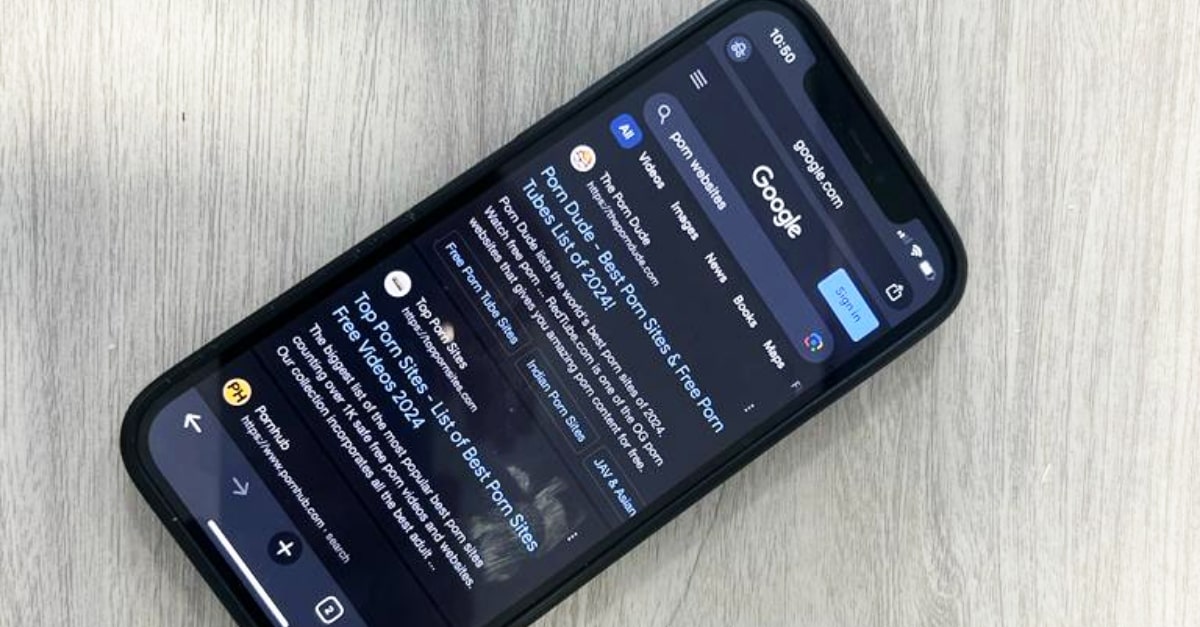Adult SEO Keywords: Your Guide To Being Found Online in the Adult Industry

You’ve poured your heart and soul into building the perfect website for your adult business. Whether you’ve developed an adult e-Commerce or escort website, your new informative platform is designed to establish you as an industry leader.
However, weeks after launching, you find that your website is still stranded in the digital wilderness… and the traffic you anticipated remains elusive. If this sounds eerily familiar, you might be missing a crucial ingredient in your digital marketing strategies: Search Engine Optimisation, or SEO for short.
Adult SEO is what like-minded adult entrepreneurs use to propel their websites to the top ranks of Google search engine results, bringing a flood of potential clients to their doorstep. One main aspect of this strategy is the use of adult SEO keywords, which are vital when it comes to online success.
In this blog, we’ll delve into the world of keywords, understand their importance, and equip you with the knowledge needed to harness their power effectively in the adult industry.
Contents:
- What are Keywords?
- Types of Keywords
- Why are Keywords Important for Adult SEO?
- How to Carry Out Keyword Research?
- Why Should You Incorporate Keywords into Blog Posts
If you’re still unfamiliar with the basics of SEO, click here to read our beginner’s guide.
What Are Keywords?
So, let’s start at the beginning. What exactly are keywords?
Put simply, keywords are the words or phrases that users type into search engines, like Google, to find content relevant to their queries. They play a pivotal role in the realm of adult SEO by guiding website content towards increased organic search traffic.
When you understand how to wield keywords, you’re not only optimising your website for search engines but also ensuring your content aligns perfectly with what your potential clients are searching for.
In an industry where the digital competition is fierce, we start to see why keywords step into the spotlight.
Types of Keywords
There are many different types of keywords used to address various search queries. These are:
Generic Keywords
These are succinct phrases containing one or two terms. For instance, “sandwiches” represents a generic keyword, covering a broad subject matter.
Long-Tail Keywords
In contrast, long-tail keywords consist of typically three or more terms, offering specificity in search. Consider “gourmet sandwiches in London” as a prime example, where the search narrows down to a highly specific topic.
LSI Keywords
LSI keywords (Latent Semantic Indexing), also known as related keywords, are words or phrases that share the same context or are semantically associated. For example, if the primary keyword is “sandwiches”, then the related keyword can be “baguettes” or “butties”.
Broad Match Keywords
Broad Match keywords are most commonly known from their prominence in the Google Ads platform, and are often used in PPC campaigns. When you specify a term as a broad match keyword, Google is instructed to display your ad for any search that includes a variation of that keyword. So, if the keyword is “sandwiches”, the Google Ad would appear during searches for terms like “sandwiches near me”, “cheap sandwich shop”, etc.
Phrase Match Keywords
Phrase Match Keywords are another type of Google Ad keywords. These types of keywords include specific search phrases that are targeted on Google Ads search campaigns.
Exact Match Keywords
Exact match keywords refer to search results or content that perfectly match all of the keywords in the search query, exactly as entered.
Branded Keywords
Branded keywords are any search queries that are directly associated with your brand, products, or services. Most often, they contain brand names in them, like “Sandies Sandwiches” or “Sandies Manchester Sandwich Shop”.
Why are Keywords Important for Adult SEO?
Google, the all-knowing search giant, uses various factors to assess a website’s relevance. The presence of keywords on your website is one of these key factors. When someone fires up a search, the search engine scans its vast index of websites, seeking the ones that best match the search query’s keywords & searcher intent.
Incorporating relevant SEO keywords into your website gives your business a fighting chance to appear on the first page of search results. If you’re not on the first page, your business might as well be hidden away in the digital abyss.
However, another thing to remember is that keywords do more than just improve your ranking; they also help you attract the right kind of traffic. Let’s say you’re in the business of selling sex toys as an adult e-Commerce business. By sprinkling keywords related to these products throughout your website, the chances of many sex toy enthusiasts finding your website are increased tenfold.
For this to work seamlessly, you need to put yourself into the mindset of the searcher and anticipate what they’re looking for. Using the right keyword is essential, but it’s equally important to create content that resonates with your audience.
So, in essence, keywords matter because they:
- Help search engines grasp the context and relevance of your website.
- Clearly describe your page to your end users
- Put you in front of the right audience, the kind of audience that’s most likely to convert into paying customers.
To learn more, read our ecommerce SEO page to see why search engine optimisation is so crucial for adult ecommerce websites!
How to Carry Out Keyword Research?
Now that you understand the importance of keywords in the adult industry, it’s time to dive into the art of keyword research. This is where you’ll learn how to identify the best keywords for your niche, determine their relevance, and deploy them strategically to boost your online presence. Remember, keyword research isn’t necessarily about finding high-ranking keywords; it’s about finding out what users are looking for to provide them with good, high-quality, and helpful content.
Harness the Potential of Long-Tail Keywords
While generic keywords have their merits, long-tail keywords wield a unique kind of magic. Although they may not boast high search volumes, they compensate with their low competition levels and ability to attract incredibly focused traffic. Users searching with long-tail keywords often have a clear intent, making them more likely to convert into customers.
Embrace the Art of Search Intent
Behind every keyword is a user’s intent – why are they making that search? Search intent generally falls into three categories:
- Informational: Users seeking knowledge or answers. For example, ‘how to choose the right marketing agency’.
- Navigational: Users looking for a specific website or page. For instance, ‘Adult Creative’ or ‘Sandie’s Sandwiches’.
- Transactional: Users in the buying mode, seeking products or services. An example would be ‘Best website templates to buy’ or ‘Adult SEO services pricing’.
Now, while some keywords wear their intent on their sleeve (question words like what, why, or how usually hint at informational intent), you don’t need to carry out this research alone. Within Semrush, numerous tools work their magic, automatically deciphering search intent for each keyword.
Understanding the intent behind a keyword is critical. It helps you tailor your content to fulfil the user’s expectations effectively. By delivering the right information at the right time, you enhance the user’s experience, driving them closer to your desired action, whether that’s signing up for your newsletter, making a purchase, or booking a service.
Deciphering Keyword Difficulty
Keyword difficulty, also known as keyword competition, gauges how challenging it is to rank well for a specific keyword. Factors that influence keyword difficulty include the number of pages already ranking for the keyword, your domain authority, and paid search competition.
Highly competitive keywords can be tough to crack because they attract considerable attention from various competitors. Targeting less competitive keywords presents an opportunity to differentiate yourself in the market and attract the right audience for your business. Again, tools like Semrush are great for identifying which keywords are highly competitive and which are not.
Monthly Search Volume: The Key to Effective Keyword Selection
Another critical metric in keyword research is the Monthly Search Volume (MSV), which indicates how often people search for a specific keyword in a month. By understanding MSV, you can tailor your content strategy to leverage opportunities for more traffic.
To discover the MSV of a keyword, use the Keyword Overview tool in Semrush. When you enter a keyword like ‘London Sandwiches,’ the tool provides an estimate of the MSV for that keyword, and it’s this insight that helps you focus your efforts on keywords with higher search volumes. As a result, this ensures a potentially wider audience reach for your adult business.
Crafting Unique Content Through Niche Keywords
To build your brand authority within a specific niche, leaning into less competitive keywords is the way forward. Niche keywords pave the path to crafting specialised content that resonates with a specific audience. With these keywords in your sights, you’re on the journey to establishing yourself as the go-to expert in your chosen field.
For instance, consider the broader keyword ‘London Sandwiches.’ It’s a highly competitive term with a multitude of content vying for top spots in search results. But if you narrow your focus to a longer, more specific key phrase like ‘Vegan Sandwiches in London,’ you can carve a niche for your business. This strategy is your ticket to standing out and cementing your authority within your target audience.
In essence, effective keyword research and the strategic utilization of keywords in your content can empower you to connect with your ideal audience at precisely the right moment. It’s important to note, though, that we’ve transitioned away from an era where the quantity of keywords was the primary focus. What matters more now is ensuring that your content is of high quality and genuinely helpful to the user. There’s no need to inundate your page with keywords (known as keyword stuffing), as long as the content is relevant and valuable in the context.
Why Should You Incorporate Keywords into Blog Posts
If you’re aiming to conquer the online realm and establish your digital presence, here’s some helpful advice: Start by publishing blog posts. Blog posts are your trusty steed in the keyword joust, and they offer you a plethora of opportunities to integrate relevant keywords.
Sure, you can sprinkle keywords on your home and product or service pages, but overloading them with keyword-rich content can backfire. Visitors don’t respond well to content that feels forced and unnatural, and neither do search engines, especially after Google’s recent Helpful Content Update. Instead, they want to serve their users the best content possible.
That’s where blog posts come in. They provide a continuously replenishing source of new content that’s ripe for keyword optimisation. While your main web pages may target specific keywords, blog posts allow you to cater to more diverse, long-tail keywords or specific questions that don’t quite fit into the main content structure.
So, how does this work? Well, when someone searches for a keyword related to your latest blog post, the search engine recognises the relevance of your content and presents it in the search engine results pages (SERPs). When a curious user clicks on your post, they get not only answers to their search but also a glimpse into your entire website.
How Does This Work?
The secret behind this success lies in the surrounding text. In the context of keywords, ‘surrounding text’ refers to the words within a short distance (usually 2-5 words) from the keyword or key phrase. Google pays attention to these contextual clues to understand what your page is all about.
For instance, if your page is all about ‘Sandwiches in London,’ Google wants to see more than just that phrase sprinkled throughout your content. It looks for other cues:
- The overarching theme of your page – is it all about Sandies Sandwich shop, and the Sandwiches they offer, or do you merely mention them in passing?
- The context provided by the surrounding paragraphs and sentences – do they delve into the topic of Sandwiches?
- Variations of the keyword in different parts of your content – do you use various phrases like ‘Sandwiches in London’ or ‘London Sandwiches’?
In essence, Google’s mission is to ensure your content is genuinely relevant to what searchers are looking for. If you want to rank for ‘London Sandwiches’ but your page doesn’t really talk about the topic in detail, Google will quickly see through your ruse.
Start Your Journey Today with Adult Creative
So, as you can see, keywords are the foundation of SEO, helping your website climb the ranks in search results and reach the right audience. They’re not just phrases to sprinkle around your content but vital components that should harmonise with the context and purpose of your content.
Whether you’re running an adult e-Commerce business, a Sandwich Store or a Strip Club, understanding the intricacies of keyword research and its implementation in your content strategy is your roadmap to digital success.
Here at Adult Creative, we understand the unique challenges and opportunities within the adult industry, and we’re passionate about helping businesses like yours thrive.
Let us be your partner on the journey to page 1 rankings and increased traffic. Get in contact with Adult Creative today to embark on your Adult SEO adventure!
Looking to spruce up your website design? Check out our extensive range of adult website templates, all specially designed to showcase your offerings and enhance user experience.




